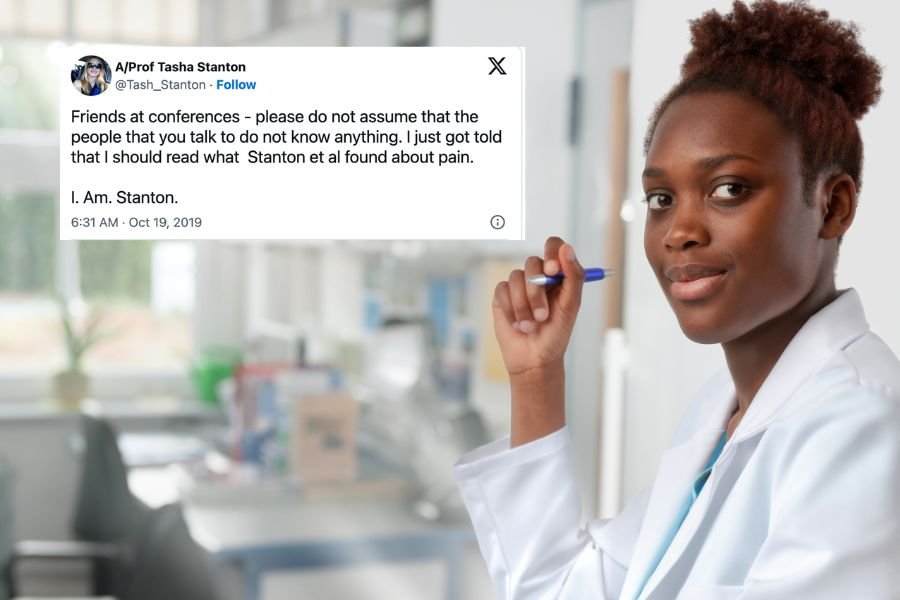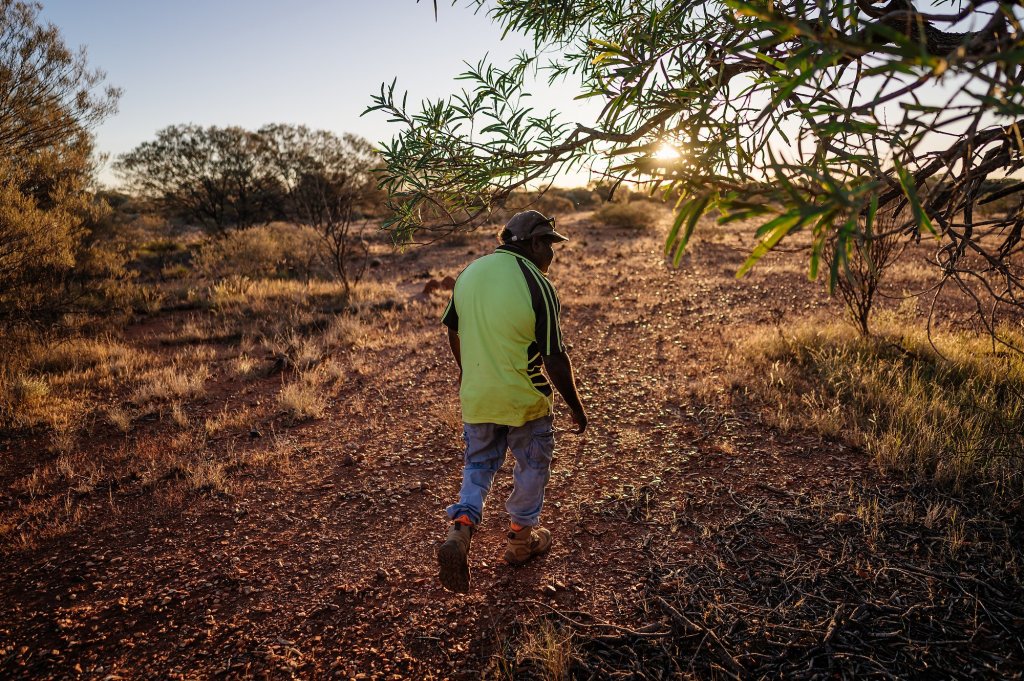Mansplaining is not a science, but an art. It’s when a man explains to a woman what she actually means. It comes with the assumption that the speaker doesn’t know what she’s talking about, even if she’s literally an expert in the field. And it’s annoying AF.
Dr. Tasha Stanton, an associate professor of clinical pain neuroscience at the University of South Australia, encountered a mansplainer at an Australian Physiotherapy Association Conference. Her experience is pretty relatable, even if you don’t have “Dr.” in your title.
After talking with a man, he, unsolicited, told Stanton she should read a paper. A paper that she wrote. “Friends at conferences – please do not assume that the people that you talk to do not know anything. I just got told that I should read what Stanton et al found about pain,” she posted on Twitter. “I. Am. Stanton.” Mic. Drop.
The man had no idea who he had been talking to. Stanton said she knows she can’t expect someone to know what she looked like based on seeing her name on a paper. However, she should be able to expect that the person she’s talking to treats her like someone who knows her stuff. “Just to be clear: I would never expect people to know what I look like! The more hilarious part of this was that the earlier part of the conversation had more of a condescending tone with recommendations of what I should read, which happened to be MY paper,” she wrote.
Stanton said he was “visibly shocked. There was an “awkward silence” and “some attempted backpedaling.” But Stanton took it in good stride. “[W]e both had a laugh. I told him that it was a massive compliment that he recommended my paper, that I am glad he enjoyed it and found it useful … but that in the future he might want to be careful not to assume that other people don’t know things … especially when you are at a conference. We all make mistakes — I know I certainly have — but hopefully the message got across.”
After Stanton posted her experiences on Twitter, other women chimed in with their own experiences of getting mansplained.
“@Tash_Stanton As a graduate student, I was once standing at my poster, with my name tag on, and was basically asked when “Swann” would be coming. When I said I was “Swann” the person said “Oh, from your work I thought you would be a man.” He didn’t seem the least bit troubled or embarrassed.”
Stanton said it’s important to speak up when someone cuts you off by saying, “Well, actually…” It’s the only way we can grow. “It’s really important to be able to stand up and call it as it is because that’s not a great way to interact with someone at a conference,” Stanton told Good Morning America. “People will never learn if you don’t call it out.”
Why should someone refrain from mansplaining? If anything, it’s just good manners. “It’s not about trying to be the smartest or showing anyone up. It’s literally about connection and the best way you’re going to connect with someone is by actually asking questions about them. … that can result in an amazing collaboration that you might never have thought!” Stanton told GMA. “Don’t be that guy.”
It is astounding that this many women were able to chime in with their own experiences of being told to read something they wrote. The only silver lining to this story is that the mainsplainer didn’t chime in with, “Well actually, what happened was…”
This article originally appeared on 10.31.19





























